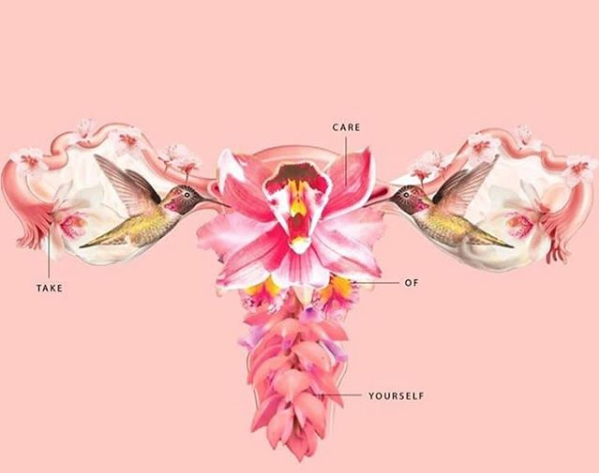
Why is female pain ignored? Examining sexism in healthcare
Gender bias in the medical industry is becoming increasingly more prominent as a direct result of women sharing their stories and opening up about their experiences with pain and illness.
Just last year, a study carried out by the Heart Association and the National Institutes of Health found that women are less likely to be given CPR. Men were more likely to survive cardiac arrest in a public place by a massive 23%.
This year alone, the CervicalCheck scandal has rightfully caused outrage in Ireland, when it was reported that hundreds of smears were in fact out-of-date, which resulted in the wrongful diagnosis of numerous women who could have survived if they had been given the accurate results in time. Only mere weeks ago, cervical cancer sufferer and campaigner Emma Mhic Mathúna died aged 37, a mother of five.
In tragic and life-altering instances such as these, women deserve compassion and respect in their healthcare journeys, it has since been reported that doctors were told to "use their own judgement" regarding whether or not to tell patients about their misdiagnosis.
The right to information surrounding your own body should be the lowest bar set, it cannot simply be a privilege for the few. Bodily autonomy has never been an equal playing field for men and women.
Vicky Phelan sued the US laboratory who wrongfully interpreted the results and was awarded €2.5 million in compensation by the High Court, after finding out in September 2017 that her 2011 smear test was a false negative.
In 2016, researchers at University College London found that women with dementia receive worse medical treatment than their male counterparts with the same condition. I could go on.
Statistics and cases such as these may seem like aberrations in the system, yet so many women claim to experience sexism in their GP clinics, local hospitals and consultants offices every day.
Gender, race and poverty are undeniable biases in healthcare- none of these should ever be ignored.
Sexism has been a major factor in medicine since time began, from Aristotle’s declaration that the female form is naturally inferior, to the connection of the uterus with apparent female “hysteria” in the middle ages, trying to get a doctor to empathise with female pain can be draining and hugely frustrating.
This is not helped by the fact that the majority of consultants and specialists are male, and are rarely trained to spot female symptoms or female illnesses in the same detail as those of the male body.
It may seem absurd in this day and age that the Victorians confined women to asylums, whether they showed any evidence of mental illness or not, but doubt still leaks into clinics and hospitals when it comes to female pain.
The fact that women have to go through the most difficult time to get a diagnosis of female illnesses such as fibromyalgia and endometriosis speaks volumes into the lack of funding which goes into researching these diseases, which affect thousands of women nationwide.
Fibromyalgia is still suspended in the disbelief of numerous practitioners, despite women pertaining symptoms for years at a time without gaining any appropriate treatment.
Lady Gaga has recently spoken out as a sufferer of this condition, asking for better healthcare to treat this complex disease which causes total body pain.
Women are portrayed as hysterical hypochondriacs, and men are constantly depicted as the silent stoic types, who refuse to show weakness in the form attending a prostate exam that could save their life.
The Girl Who Cried Pain represents a 2001 study by Anita Tarzian and Diane Hoffman which examined pain management and gender. It showed clearly that women were far less likely to be given pain relief or long-term medication for pain (drugs such as Gabapentin, Lyrica and Amitriptylene), and it also revealed that women are less likely to gain the adequate treatment by healthcare providers.
Ask Me About My Uterus by Abby Norman is another fascinating read which describes her torturous experience of trying to get a diagnosis for her endometriosis, a dangerous illness where uterine tissue grows on organs outside of the womb. Often the only treatment is sedatives, or a hysterectomy. Endometriosis UK has claimed that despite the illness affecting 1 in 10 women, it takes an average of nine years to get a diagnosis.
I had to beg my own consultant for a laparoscopy exam after two relentless years of chronic abdominal pain, and he stopped my GP from prescribing me my vital pain medication after claiming that there was “no reason” for my pain. AKA, he didn’t believe me.
I have since been diagnosed in the US after three years with a congenital pain condition where I was born with a vast excess of nerve endings at the base of my spine, which affects over 13% of women, and yet not a single doctor in Ireland or Britain could offer any treatment or advice.
When I went to America, the specialist who has thousands of female patients who travel across America to see him told me that he is refused funding daily for his clinical trials and research into female pain, for the reason that all the funding is instead siphoned into drugs aimed at male pleasure, despite there already being several high-quality treatments.
According to PubMed, there are currently over 2,000 trials focusing on erectile dysfunction, and a grand total of 300 on EVERY TYPE of female pain.
If you don’t believe that stigma and sexism is prevalent in healthcare, maybe question why it’s so easy for a man to walk out of a GP clinic with a prescription for Viagra, yet it takes a woman in excruciating pain nine years to get told she has endometriosis, a life-long illness.
Since 1995, it has been confirmed that women experience stimuli at a more intense level than men.
Women have a proven different experience of pain than men, surely they deserve to be taken as seriously?
Yet society has conditioned women to ignore their pain, to handle it with clenched teeth and no complaints.
If you’re going to focus entirely on male pleasure, don’t ignore female pain, because it won’t be kept silent.
By Kate Brayden
Feature image: Instagram/@kdkatcricket















